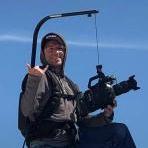
Policar
-
Posts
406 -
Joined
-
Last visited
Reputation Activity
-
 Policar got a reaction from Timotheus in Canon 80D video quality still atrocious
Policar got a reaction from Timotheus in Canon 80D video quality still atrocious
Everyone is going to be a bit biased toward what they own or choose to use because it took all their research and money to get to that decision (plus the additional time and expense of buying and selling and renting and demoing everything under the sun before making the right decision). But while everyone's choice is usually eventually right for their needs–it gets pretty exhausting deluding yourself and going down the wrong path–many cameramen will then embrace the strengths of their given instrument the more they use it and their bias will only extend as their needs are changed by their choices, rather than the other way around. If you've got an A7S you're gonna shoot low light; if you've got a Dragon you definitely won't.
There are a lot of talented guitarists, each using and loving completely different guitars, and to what extent choice informed aptitude and aptitude informed choice is debatable there, too. It goes both ways. Causation, correlation, and whatnot.
I think the only mistake is believing everyone shares your needs and your taste (and your finances). I like just about everything if it's done well, maybe it's a lack of cultivated taste, so it's easy for me to say "do your thing," but I also think everyone is going to do their thing anyway so being too set in your beliefs won't help unless you're making your own decisions (which you don't need a forum to make). No one else's needs are your own, so every recommendation is going to vary.
You seem like someone who is very thoughtful but also opinionated, and it's good to think before drawing a conclusion. But don't be too quick to dismiss those who form their opinions intuitively rather than intellectually. A lot of the greatest filmmakers operate that way when picking coverage, directing performance, etc.–choices far more important than codec. I think Paul McCartney never learned to read music. Bias is good, it shows intelligence. Intransigence isn't, it reveals solipsism.
-
 Policar got a reaction from CMB in Canon 80D video quality still atrocious
Policar got a reaction from CMB in Canon 80D video quality still atrocious
Everyone is going to be a bit biased toward what they own or choose to use because it took all their research and money to get to that decision (plus the additional time and expense of buying and selling and renting and demoing everything under the sun before making the right decision). But while everyone's choice is usually eventually right for their needs–it gets pretty exhausting deluding yourself and going down the wrong path–many cameramen will then embrace the strengths of their given instrument the more they use it and their bias will only extend as their needs are changed by their choices, rather than the other way around. If you've got an A7S you're gonna shoot low light; if you've got a Dragon you definitely won't.
There are a lot of talented guitarists, each using and loving completely different guitars, and to what extent choice informed aptitude and aptitude informed choice is debatable there, too. It goes both ways. Causation, correlation, and whatnot.
I think the only mistake is believing everyone shares your needs and your taste (and your finances). I like just about everything if it's done well, maybe it's a lack of cultivated taste, so it's easy for me to say "do your thing," but I also think everyone is going to do their thing anyway so being too set in your beliefs won't help unless you're making your own decisions (which you don't need a forum to make). No one else's needs are your own, so every recommendation is going to vary.
You seem like someone who is very thoughtful but also opinionated, and it's good to think before drawing a conclusion. But don't be too quick to dismiss those who form their opinions intuitively rather than intellectually. A lot of the greatest filmmakers operate that way when picking coverage, directing performance, etc.–choices far more important than codec. I think Paul McCartney never learned to read music. Bias is good, it shows intelligence. Intransigence isn't, it reveals solipsism.
-
 Policar got a reaction from Snowfun in Legal Advice Music Video
Policar got a reaction from Snowfun in Legal Advice Music Video
If it were a paying client, they'd almost definitely have final cut. And you'd have been fired by now.
Treat this like a paying client, keep the directors' cut on your website/reel and meet them halfway with the changes (or ask to be paid for changes beyond the third revision).
If it's great, great, you'll get high paying clients soon. Don't let a reputation for being difficult from a small local act hurt your potential for commercial success in greater arenas.
Work this out amicably.
-
 Policar got a reaction from Jonesy Jones in Which light meter do I need?
Policar got a reaction from Jonesy Jones in Which light meter do I need?
I like the 758C and there are those who rely heavily on spot meters or prefer a dual meter, but a simple Spectra incident meter will be more accurate and simpler than the Sekonic and all you really need. It's what I see most gaffers carrying. That said, if you want to learn all there is to learn, a dual meter like the 758 or 558 will be useful. I find I almost only use the indecent meter when shooting video, though, and the spot meter when shooting 4x5.
The 758C is fine overall but you will want to get it calibrated, there's one place in LA that calibrates them for about $100. I think a lot of AFI guys just use a spot meter, which is weird to me.
I'd argue a light meter is necessary for any serious work. Maybe you've reached the level where you don't need one, but reading ratios from a waveform monitor seems like a dubious proposition, as does pre lighting a set without an incident meter. If you have a good enough gaffer you may not need one, but I think gaffers appreciate a DP who is as informed about the lighting as he is.
-
 Policar got a reaction from Mattias Burling in 5d III RAW vs C300
Policar got a reaction from Mattias Burling in 5d III RAW vs C300
Sure, but the images are much better looking on the Canons. My laptop is more powerful than both, but its webcam isn't great.
The above said, I wouldn't upgrade from the 5D to the C300 hoping for a better image. The difference isn't great and you lose the full frame look. I would purely for ergonomics or because clients want it (it's easy to get a $600-$1000/day wet hire rate with one, vastly more for experienced ops–the FS7 is popular, too).
-
 Policar got a reaction from Inazuma in 5d III RAW vs C300
Policar got a reaction from Inazuma in 5d III RAW vs C300
Canon has insisted since release that the C100 and C300 have an identical image other than codec.
That said, a pro on reduser revealed that Canon admitted privately to him that the imaging pipeline on the C100 had been dumbed down relative to Canon's higher end offerings, and the image quality is objectively much worse.
Having used both, I can't tell the difference. It seems like, as is often the case, the cheaper cameras have a worse image because less experienced operators have their hands on them. But I never set them up side-by-side and I don't have access to Canon's engineers as did the guy on reduser.
That said, it would be an enormous breach of consumer trust if Canon had in fact lied about dumbing the pipeline down and this is the ONLY documented case of anyone making the claim that there's a difference in image quality. At their current prices, I would take the C300 over the C100, though, for sure. The ergonomics are so much better and the image definitely isn't worse. The internal codec is a lot stronger, too.
Fwiw, I would consider the C300 a documentary camera and the C100 a wedding/videography camera. The lack of HD/SDI and timecode sync excludes it from anything remotely professional, except on the extreme low end and as a B cam. (That said, I own one and have shot b cam on features that were mostly Alexa and 10-20% C100. No one can tell the difference after the grade, although we had to work around the camera's limitations in dynamic range and shadow tonality by exposing a bit differently. Matching Red and F5 to Alexa proved much harder, however.)
-
 Policar got a reaction from Ed_David in BM or Red?
Policar got a reaction from Ed_David in BM or Red?
+1 on Alexa Mini if you can afford it, but the total cost will exceed $100k. You might also be able to increase your wet hire rate substantially.
I don't like the Red "look" but most clients seem to like it a lot and the specs are quite nice, but their lower end cameras have rented poorly and you will face some competition from rich kids.
-
 Policar got a reaction from Ed_David in RED "weapon" 8K footage
Policar got a reaction from Ed_David in RED "weapon" 8K footage
I've seen this, too, even in Gone Girl, where they at least embraced it. The new OLPF looks dramatically better at least.
It seems like 95% of people love the Red look. I've never liked it but I'm in the minority and appreciate what the company has done for the industry. It's just a matter of taste. I always found 2k to be enough and preferred rich color over resolution, but it seems the trend is in the opposite direction, and it becomes the artist's job to follow trends or buck them in niche ways, I suppose.
-
 Policar got a reaction from Nick Hughes in Lens porn: Sigma 50-100mm F1.8 Art
Policar got a reaction from Nick Hughes in Lens porn: Sigma 50-100mm F1.8 Art
To be fair, the only unacceptable motion artifacts I've seen (beyond legitimately anomalous glitches with my 70-200mm f2.8 II IS, but anomalous glitches which would ruin an image) were with Tamron lenses. The IS is amazing, but it locks onto one frame...drifts...finds another: feels very much designed for stills with Tamron. Canon is a bit smoother.
But you're speaking incorrectly for an audience who disagrees completely with you, and disagrees correctly.
I don't care about numbers, be it 5k frames analyzed or 4k pixels captured, I care about images. And every image stabilized lens I've used has imparted a slightly unnatural motion, or lagged a bit, or self-corrected when stationary, overshot during a pan, etc. For me, in a guerrilla shoot (what 99% of people here are facing) the die roll is in our favor: it's more stable. For those with the complete control of being on set with top level gear and excellent crew members, the die roll is not in their favor: they're already getting it right, IS can only get it wrong at the worst $100,000 moment.
There's plenty of middle ground, but how much of your shooting with no IS and with IS has been on studio-distributed features? On tentpoles? With the people you claim to speak infallibly for (union camera operators)? I'm guessing not that much. Every union camera op, AFI grad, etc. I've spoken with would disagree.
That said, it's never bad to have the option. But I think Sigma has targeted this lens more toward portraiture and video than toward sports. And to that extent, their omission makes sense.
-
 Policar got a reaction from Geoff CB in Lens porn: Sigma 50-100mm F1.8 Art
Policar got a reaction from Geoff CB in Lens porn: Sigma 50-100mm F1.8 Art
This is really a matter of personal taste. Every professional camera op I've talked with considers IS useless for video because of its unpredictable behavior and motion artifacts. They'd all take a steadicam or balanced shoulder rig over IS any day.
Maybe for news gathering or doc I could see the utility, but for "cinema" it's undesirable.
-
 Policar reacted to Grim Fandango in Film Piracy, Careers Ruined, Sundance, Worth it?
Policar reacted to Grim Fandango in Film Piracy, Careers Ruined, Sundance, Worth it?
Re: Streaming on your own website - if it can be displayed on a screen, it can be ripped, by using a software that masquerades as a screen, then records what it is "displaying". You will still have your movie pirated. Sorry.
It may be a nightmare, but just keep on top of the distribution, shut it down, dedicate a quarter of an hour as regularly as you can to searching and composing your boiler plate "remove this content from your service please" email and you will limit it as much as you ever can. Don't risk your sanity over it, you've got bigger problems, including:
Piracy is an easy scapegoat as to why your movie wasn't profitable. No-one has yet been able to prove a shred of economic damage as a result of piracy, and these consultation firms have been investigating the issue for decades. There IS solid data which supports the theory that people who view your content for free today pay more for the content you produce tomorrow. There is also solid evidence that the vast majority - over 99% of "download incidences" are non conversions i.e. this download is not a lost sale. They are other pirate bay type operations who want it on their service, they are the bots which trawl the internet logging god knows what, they are people who cannot afford your movie anyway and they are people who download it and never open the file.
I think people who are blaming piracy for their lack of profitability are, on the whole, looking to blame anything that was "done to them" to explain their lack of profitability, it's a lot more seductive than having to change how one approaches the commercial side of the business. People seem to have this over-romanticised idea of "the movie business" that never existed. It has always been cold and difficult for new talent, low budget productions and independants. People have always taken advantage of your hard work, taken it for free and put their name on it.
Nothing has changed, except that it's gotten easier and cheaper to make content, distribute it and earn from it. Sure, it's not all roses, but it's a hell of a lot easier than it was 30 years ago. So are they all paranoid conspiracy theories, no, there is always that guy, sat at his computer smug that he watched a movie for free, they exist. But honestly, was he ever going to pay for your film? There are always those in different economic circumstances who cannot afford the lowest price you could distribute your film to them for. Will half the world ever start paying the "low" $3, when they earn $2 a day, and need to pay rent, feed themselves, keep themselves healthy and bring up their kids first - will they ever pay you? But some people who download your movie do find themselves in better economic circumstances. And the evidence shows that they do then start paying for their entertainment that they used to get for free.
So the theories are correct, but the economic damage is pie in the sky - numbers they pulled out of their backsides, they don't know that if piracy didn't exist, they would have taken an extra $250k. They just ran some stupid algorithm that they think sounds reasonable - 10% of all downloads would have paid me because, despite non of the evidence pointing to that, I believe it is so.
And quite frankly, the people who have made themselves mentally ill, and driven themselves to the point of suicide have much bigger problems than bankrupsy - which people, especially self employed people in the lowest end of their industry go through every day and continue to lead rich and fulfilling lives. They deserve our sympathy, our help and support and all the good will of the community. I travelled to Japan to meet with a guy I only knew through the internet because when youtube deleted his account after three bogus copyright strikes, he said some really worrying things. He lost his livelyhood overnight, because someone content claimed Kevin McClouds music, and Google don't care. Guess what, he was really really sick - this was just the trigger. He got the help he needed and is doing OK now, people don't commit suicide, attempt it or even contemplate it unless they are seriously ill anyway and needed the help regardless, or are making a cry for help and attention. And they absolutely deserve our help, our attention and our good will. False platitudes don't help - playing along with their narrative that "the pirates did it to me" is just as damaging as playing along with a person with dementia's false beliefs, or agreeing that you can see something that a person with schizophrenia thinks is real. It may be the easy way to "help" them in the short term, but long term, their condition gets worse below the platitude.
And finally, if you punish your paying customers by dracconian measures to "lock it down", your paying customers get fed up with seeing the people who download it for free get a better product than they do. Reread every comment in this thread with this in mind: Piracy is a service issue. Look at Cinegain "People seem to prefer the convienience of pai services" - service issue, Silvertones "I subscribe to XBox music because" - service issue, sanveer - "people want quality" - service issue, the whole pornography debate, what drives the porn industry - free easily accessible porn.
I don't have the answers, but I don't want to see only the profitable movies be made. That's why I support content creators I admire through patreon, kickstarter et al. Not practical for indie movies, but it's evidence that other forms of entertianment have adapted and survived. Of the industries I am interested in, Boardgames - the biggest game in the world right now was a print and play (read as download for free) game. People pay to get nice cards. Computer games - the biggest games in the world right now are free to play. Youtube content - advert supported content, free to the user. What do you notice - the industries have pushed their content to the user and made it as accessible as possible. Take a look at the recent sim city vs a direct rival Cities Skylines. Simcity had dracconian anti piracy measures. Cities Skylines did not. Simcity was a disaster, directly as a result of it's DRM and a commercial flop for EA. Cities Skylines is one of the industries top sellers right now, continuing to take more money on a recent expansion. They are almost exactly the same game. As I said, I don't have the answers, but I sure know that "locking it down" is guarenteed to cost you income.
-
 Policar got a reaction from Zach Ashcraft in "ArtoftheImage" = MORON
Policar got a reaction from Zach Ashcraft in "ArtoftheImage" = MORON
Camera and tech youtube channels make huge profits off amazon affiliate links. Controversial (or wrong) opinions generate views on youtube as videos are more likely to be shared (as in here) and there's profit in that. But then there's even bigger profit from affiliate links.
He's not interested in cameras, he's interested in money. Good information is rarely controversial or simple enough enough to be worth sharing. The more incendiary the criticism, and the less accurate, the more money.
I thought you had to at least get the money to rent cameras to start these channels, though. Maybe I should give this a try.
-
 Policar got a reaction from shijan in Tiffen Ultra / Low Contrast filters
Policar got a reaction from shijan in Tiffen Ultra / Low Contrast filters
As all diffusion filters do.
-
 Policar got a reaction from Lintelfilm in Guess the Camera (please)
Policar got a reaction from Lintelfilm in Guess the Camera (please)
It looks badly shot to me–not incompetent, just not great–but we're all allowed our opinions and that's mine. Even the interiors are badly overexposed and the lighting and composition on the faces are poor. Again, composition is subjective but this is pretty bad by any standards.
"Sharp" is consistent with C300. I've never heard of sharpening in post on a commercial project except to fix misfocused shots. If this is from freelance shooters in LA it's almost certainly C300, that camera is everywhere and practically what you're expected to own. I think the Vice documentaries shot with the C300 (and dSLRs) look nicer. It's definitely the camera I see most in LA, with the Amira and C100 coming in about equally tied for second. This is generally doc work. I don't work on set so it's what I see in the street. When I'm on set I see the Epic Dragon a lot, too.
-
 Policar got a reaction from Marco Tecno in Guess the Camera (please)
Policar got a reaction from Marco Tecno in Guess the Camera (please)
Poorly lit. Poorly exposed. Poorly framed.
-
 Policar got a reaction from Marco Tecno in Guess the Camera (please)
Policar got a reaction from Marco Tecno in Guess the Camera (please)
Whatever it is it's very poorly shot. C300 is believable.
-
 Policar got a reaction from Zach Goodwin in 1dx mark ii, 4k 60fps?
Policar got a reaction from Zach Goodwin in 1dx mark ii, 4k 60fps?
Looks like a nice camera for stills.
-

-
 Policar got a reaction from Phil A in Sony FS5 - why I bought one
Policar got a reaction from Phil A in Sony FS5 - why I bought one
He's right. Read the C300 white papers. I forget the details, but what it boils down to is that the 1920X1080 red pixels, 1920X1080 blue pixels, and one set of the two sets of 1920X1080 green pixels are added together as if they were stacked on top of each other (they're not, but close enough). The last set of green pixels is used for noise reduction or oversampling the first set of green pixels. Or something.
So the 1080p image is derived from 3840X2160 pixels, and all the pixels are used to construct it, but there's never a UHD image anywhere in the pipeline because there's no debayering that takes place. There is UHD raw but it's processed directly to 1080p. This might be why the image is exceptionally sharp, like a Foveon image, but also why there's some aliasing in red and blue fabrics and some people feel the image is over-sharpened.
If your clients demand 4k, get a 4k camera. If they don't, don't get one. The best buy is whatever offers the best return on investment, whether that return is financial (as a pro) or in enjoyment (as a hobbyist). What makes the decision hard is when you're something in between.
What hobbyists admire most about a Red camera–the ability to construct and process an image with no internal noise reduction in high bitrate raw–is what makes it super obnoxious to pros and expensive for producers because of the added time to do that work... The question is: do you want to do the extra work because it's a hobby you enjoy or are you paying, out of your own time or someone else's, to do the extra work? If you're somewhere in between the two, what matters most to you? If I had a 4k tv I might be more inclined to buy a 4k camera, for instance, even if my clients didn't request it.
Notice all the Reds being used on low budget music videos? And all the Canons being used on high end corporate? Corporate pays a lot better than music videos. It's a lot less fun. I'm a very big fan of Canon and Arri, but that's just one opinion.
-
 Policar got a reaction from DanC1 in My review of The Revenant, shot on the Alexa 65mm in only natural light
Policar got a reaction from DanC1 in My review of The Revenant, shot on the Alexa 65mm in only natural light
You aren't the only one who feels this way. Others have just give up on posting dissenting opinions because of how exhausting it can be defending them when, ultimately, they're just opinions, not critiques of others' taste. But no one likes rain on their parade.
Birdman was fun. But generally Inarritu isn't my taste, either.
-
 Policar got a reaction from Zach Goodwin in The Revenant
Policar got a reaction from Zach Goodwin in The Revenant
I'm not sure what your opinion is, but fair enough.
-
 Policar got a reaction from Jimbo in C100 MkII vs Ursa Mini 4K
Policar got a reaction from Jimbo in C100 MkII vs Ursa Mini 4K
Do your clients ask for 4k? If not I would go with the C100.
It sounds like you're going to love the C100. As regards image, it doesn't do anything particularly badly or particularly well. It's a safe bet. The color is really nice, though, and it makes people look good. Canon is second only to Arri in that respect, and arguably they handle skin tones even better. Very sharp, too. The learning curve is there, but fairly simple (mind your super whites and don't throw them out in post because highlight dynamic range is not super generous, use your waveform monitor, learn the focusing aids) and once you get past the learning curve, operating, even as a lone gun, becomes a transparent experience. Likewise in post, but I find skipping Canon Log entirely–unless you're shooting b cam for an Alexa shoot and really need the flexibility–and using WideDR keeps things really simple as you can forget about LUTs and the weird Canon pseudo-log (necessary for retaining tonality in 8 bit space and nicely executed, but like... annoying to grade compared with Log C) and just play with a low contrast rec709 image until it looks good.
A lot of what people look for in hobbyist communities like this one or reduser is the ability to emulate what the pros do on a lower budget... sort of hunting out and mastering a complex workflow for the sake of mastering it or finding a weird hack or alternative. From an editor's perspective, its like using Avid on your short film just to use Avid... But, ironically, a lot of "pros" are after simplicity above all else, only they have more resources to draw on and can hire a great DP and a great colorist and they're picking people rather than gear and software... and wouldn't pick the same gear and software without access to those people–goodness knows I wouldn't want to work with an Alexa unless I had enough people in camera department to support it. Canon's baked in look and pineapple form factor does a lot of that work for you... it's less flexible, it's less fun, but it's reliable and looks great consistently. And if you don't have Company 3-level skill set and two ACs and a loader, well, you can't really afford to use a more convoluted workflow and complex camera unless you have a LOT of time (or very little work)...
The C100 is a safe investment. If you want to tell a story or shoot a doc without a big crew but still get a good image it makes that experience way more transparent. That's also why it's unpopular on some online forums... if your hobby is in the intricacies of shooting and grading esoteric formats, a nice AVCHD image that can only take so much abuse in post but only really needs a little bit of abuse in the first place is...
Boring.
By which I mean, quick and painless. Great for business. Less fun for a hobbyist DP/colorist. (Really fun for a hobbyist director/DP, however, and perfect for pros without huge wallets.)
I like the black magic camera if you have a lot of light and are shooting vfx plates because of the resolution and lack of skew. But it has even worse highlight roll off and I find the fixed pattern noise to be highly problematic above 400 ISO. Also rigging it is trickier... the only complaints I hear about C300s and C100s from a rigging perspective are from pro ACs, who are forced to rig the pineapple as though it were an Alexa. As regards rigging, all it needs is a lens (and an LCDVF if you get V1 and not Mk II).
-
 Policar got a reaction from Lintelfilm in C100 MkII vs Ursa Mini 4K
Policar got a reaction from Lintelfilm in C100 MkII vs Ursa Mini 4K
Do your clients ask for 4k? If not I would go with the C100.
It sounds like you're going to love the C100. As regards image, it doesn't do anything particularly badly or particularly well. It's a safe bet. The color is really nice, though, and it makes people look good. Canon is second only to Arri in that respect, and arguably they handle skin tones even better. Very sharp, too. The learning curve is there, but fairly simple (mind your super whites and don't throw them out in post because highlight dynamic range is not super generous, use your waveform monitor, learn the focusing aids) and once you get past the learning curve, operating, even as a lone gun, becomes a transparent experience. Likewise in post, but I find skipping Canon Log entirely–unless you're shooting b cam for an Alexa shoot and really need the flexibility–and using WideDR keeps things really simple as you can forget about LUTs and the weird Canon pseudo-log (necessary for retaining tonality in 8 bit space and nicely executed, but like... annoying to grade compared with Log C) and just play with a low contrast rec709 image until it looks good.
A lot of what people look for in hobbyist communities like this one or reduser is the ability to emulate what the pros do on a lower budget... sort of hunting out and mastering a complex workflow for the sake of mastering it or finding a weird hack or alternative. From an editor's perspective, its like using Avid on your short film just to use Avid... But, ironically, a lot of "pros" are after simplicity above all else, only they have more resources to draw on and can hire a great DP and a great colorist and they're picking people rather than gear and software... and wouldn't pick the same gear and software without access to those people–goodness knows I wouldn't want to work with an Alexa unless I had enough people in camera department to support it. Canon's baked in look and pineapple form factor does a lot of that work for you... it's less flexible, it's less fun, but it's reliable and looks great consistently. And if you don't have Company 3-level skill set and two ACs and a loader, well, you can't really afford to use a more convoluted workflow and complex camera unless you have a LOT of time (or very little work)...
The C100 is a safe investment. If you want to tell a story or shoot a doc without a big crew but still get a good image it makes that experience way more transparent. That's also why it's unpopular on some online forums... if your hobby is in the intricacies of shooting and grading esoteric formats, a nice AVCHD image that can only take so much abuse in post but only really needs a little bit of abuse in the first place is...
Boring.
By which I mean, quick and painless. Great for business. Less fun for a hobbyist DP/colorist. (Really fun for a hobbyist director/DP, however, and perfect for pros without huge wallets.)
I like the black magic camera if you have a lot of light and are shooting vfx plates because of the resolution and lack of skew. But it has even worse highlight roll off and I find the fixed pattern noise to be highly problematic above 400 ISO. Also rigging it is trickier... the only complaints I hear about C300s and C100s from a rigging perspective are from pro ACs, who are forced to rig the pineapple as though it were an Alexa. As regards rigging, all it needs is a lens (and an LCDVF if you get V1 and not Mk II).
-
 Policar got a reaction from dbp in C100 MkII vs Ursa Mini 4K
Policar got a reaction from dbp in C100 MkII vs Ursa Mini 4K
Do your clients ask for 4k? If not I would go with the C100.
It sounds like you're going to love the C100. As regards image, it doesn't do anything particularly badly or particularly well. It's a safe bet. The color is really nice, though, and it makes people look good. Canon is second only to Arri in that respect, and arguably they handle skin tones even better. Very sharp, too. The learning curve is there, but fairly simple (mind your super whites and don't throw them out in post because highlight dynamic range is not super generous, use your waveform monitor, learn the focusing aids) and once you get past the learning curve, operating, even as a lone gun, becomes a transparent experience. Likewise in post, but I find skipping Canon Log entirely–unless you're shooting b cam for an Alexa shoot and really need the flexibility–and using WideDR keeps things really simple as you can forget about LUTs and the weird Canon pseudo-log (necessary for retaining tonality in 8 bit space and nicely executed, but like... annoying to grade compared with Log C) and just play with a low contrast rec709 image until it looks good.
A lot of what people look for in hobbyist communities like this one or reduser is the ability to emulate what the pros do on a lower budget... sort of hunting out and mastering a complex workflow for the sake of mastering it or finding a weird hack or alternative. From an editor's perspective, its like using Avid on your short film just to use Avid... But, ironically, a lot of "pros" are after simplicity above all else, only they have more resources to draw on and can hire a great DP and a great colorist and they're picking people rather than gear and software... and wouldn't pick the same gear and software without access to those people–goodness knows I wouldn't want to work with an Alexa unless I had enough people in camera department to support it. Canon's baked in look and pineapple form factor does a lot of that work for you... it's less flexible, it's less fun, but it's reliable and looks great consistently. And if you don't have Company 3-level skill set and two ACs and a loader, well, you can't really afford to use a more convoluted workflow and complex camera unless you have a LOT of time (or very little work)...
The C100 is a safe investment. If you want to tell a story or shoot a doc without a big crew but still get a good image it makes that experience way more transparent. That's also why it's unpopular on some online forums... if your hobby is in the intricacies of shooting and grading esoteric formats, a nice AVCHD image that can only take so much abuse in post but only really needs a little bit of abuse in the first place is...
Boring.
By which I mean, quick and painless. Great for business. Less fun for a hobbyist DP/colorist. (Really fun for a hobbyist director/DP, however, and perfect for pros without huge wallets.)
I like the black magic camera if you have a lot of light and are shooting vfx plates because of the resolution and lack of skew. But it has even worse highlight roll off and I find the fixed pattern noise to be highly problematic above 400 ISO. Also rigging it is trickier... the only complaints I hear about C300s and C100s from a rigging perspective are from pro ACs, who are forced to rig the pineapple as though it were an Alexa. As regards rigging, all it needs is a lens (and an LCDVF if you get V1 and not Mk II).
-
 Policar got a reaction from Nikkor in Best lowlight on restricted budged
Policar got a reaction from Nikkor in Best lowlight on restricted budged
A7S is a stunner in low light, but AF is really poor for stills compared with the 5D Mark III at least, which is my reference for "good" AF. I wouldn't push the 5D Mark II past 800 ISO for motion unless I was okay with things getting splotchy or 3200 on the Mark III. A7S I would push to 20,000 without worry. It's nuts.
If you can tolerate dodgy AF a used A7S will really blow anything away. Better low light than Alexa, Red (well, so anything is better for low light than Red), C300, F5, etc. and not by a small margin.









